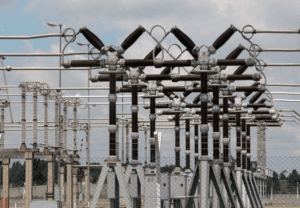Deregulated gas value chain will attract more investment — NGA
The Nigerian Gas Association (NGA) has called for the deregulation of the gas value chain in the country to encourage more investments in the sector.
Speaking recently during a program monitored by our correspondent, ‘Moneyline with Nancy’ on African Independent Television (AIT), the President of the NGA, Ed Ubong, called for a transition to a totally market-driven pricing structure, while calling on key stakeholders to proffer solution to the security issues that have impeded free flow of gas to end users.
“As an association, what we are looking for is a clear, time-bound transition, whereby we move to a totally market-driven pricing structure. However, we will continue to engage the government to understand their own worries and engage investors on the other hand to see where the middle ground is,” said Ubong, who is also the Managing Director of Shell Gas.
The NGA boss also called on the government and other critical stakeholders to look into the issue of additional unnecessary taxes that may exist in the supply chain that can be removed to enable gas to reach the people in rural areas and the streets at a lower price.
“We must see gas not as a source of wealth but as an enabler of national development. We need to look at the value chain and ask, are we still trying to generate revenue by taxing different areas of the value chain,” he said.
Ubong also commended the Federal Government’s declaration of a ‘Decade of Gas’ initiative. He noted some of the significant changes since President Muhammadu Buhari declared the initiative, including the passage of the Petroleum Industry Act (PIA), which incorporates the privatisation of the Nigerian National Petroleum Corporation (NNPC).
He also remarked that the regulatory space is almost stable with new regulatory agencies in midstream and downstream gas sectors, enabling the implementation of some of the regulatory framework that will allow the sector to grow aggressively.
However, he warned that a lot still need be done to grow domestic power supply from where it is to where it needs to be. This includes more gas to power electricity generating plants, more gas into the domestic cooking space as well as more gas into the industries that create jobs for Nigerians.
Furthermore, the NGA boss commended the Nigerian Liquefied Natural Gas (NLNG) company for its recent announcement that it will reduce its export LPG volumes in satisfaction of domestic demand, increasing domestic provision from 50,000MT in 2007 to 450,000MT in 2022, noting that the “NLNG is one of those critical stakeholders who have continued to stay behind Nigeria’s quest to monetize its gas resources.”
He suggested a multi-pronged approach to proffering solutions to the gas problems of the country, challenging other players and stakeholders in the market to come together and deliberate on solutions to ensure cooking gas becomes more available and affordable. He also commended the passage of the PIA, which is set to revolutionise Nigeria’s petroleum industry.
“One of the key things in the PIA is that the royalty structure around gas has been separated from oil which will allow investors a clear view on whether they are investing in oil or gas. It has also clearly delineated between upstream and downstream which will allow investors to decide where they want to play in the value chain,” Ubong said.
“We are also excited that gas finally has a regulatory agency. What that means is that we are now on a firm path to put in place gas regulation that will support the ‘Decade of Gas’ initiative, with clear regulations that provide confidence for investors, clear ways of licencing, open access to various areas, and various incentives for investment,” he added.
He lauded the strides of local players in the gas sector such as Axxella, Falcon, Eroton, Chevron, SPDC, and Seplat.




